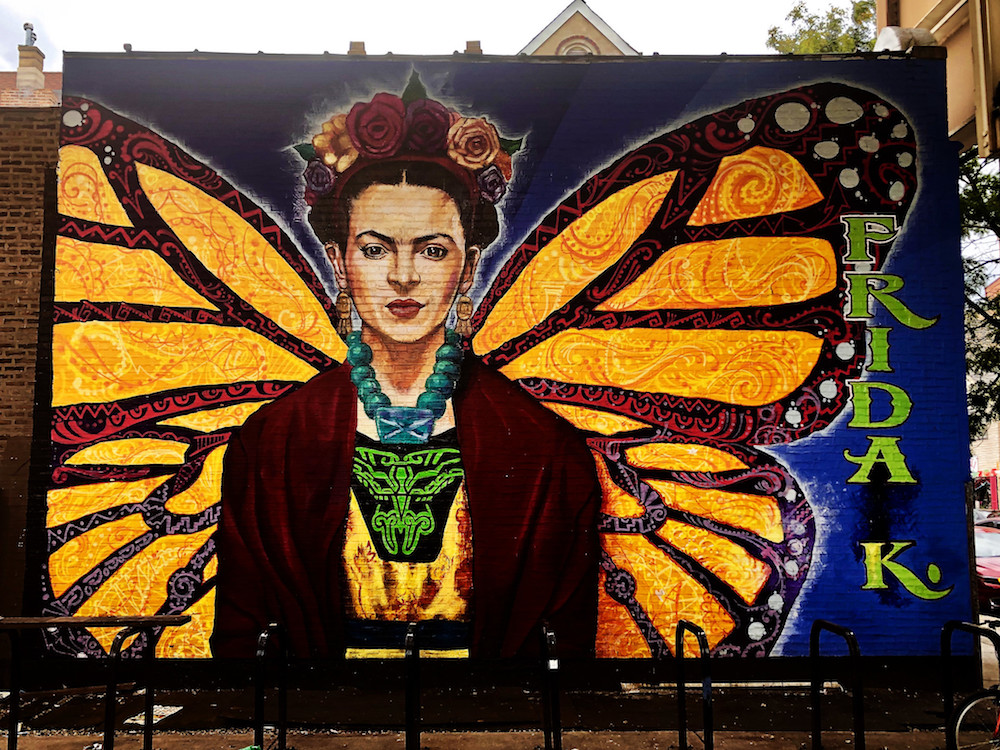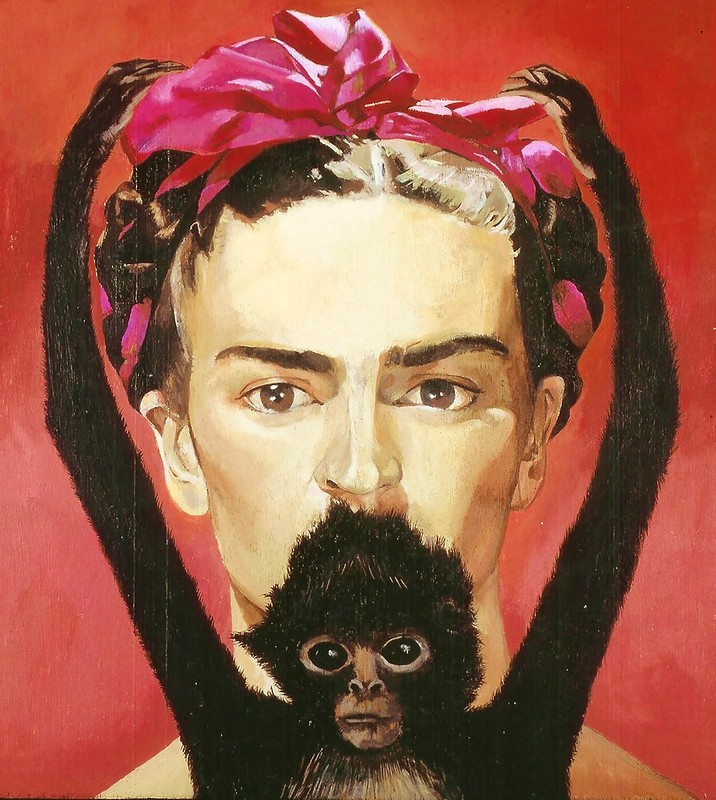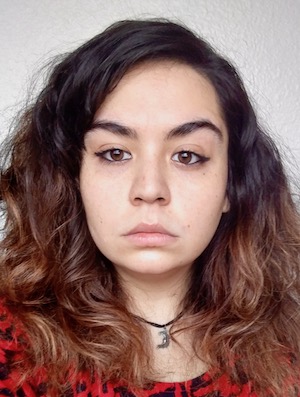Mustache Girl [1]
May 4, 2020Essay by Siobhan Manrique
Facial Fur and My Quest for Superpowers

In 2004, just as my family sprayed water at our cats to keep them off the houseplants, my female peers repelled me from their lunch tables by chanting, “Mustache Girl! Mustache Girl!” Unfortunately, the Marvel Cinematic Universe had yet to achieve a real foothold in the zeitgeist. Becoming Mustache Girl didn’t give me any zany superpowers.
With coarse dark hair, chiefly from Irish and Venezuelan roots, the hormonal upheaval of my early adolescence was no private affair, particularly in small-town, rural (that is, redneck) Alaska. Sitting in a corner of the classroom, standing in the back of the bus line, huddled on the bleachers, hidden behind a book, there was no shelter from the she-devils, no matter how claustrophobic a cranny I backed into. They simply could not resist.
“Is that a bunch of blackheads? No, wait! It’s just your hairs.”
“Are you, like, actually a boy?”
“Um, so gross. You should shave your face, idiot.”
“You better go pluck your bushy eyebrows. Sicko.”
I cursed God for giving me dark hair. Mercifully, the boys had yet to register my existence, but I often felt the girls’ breath on my skin. I suppose the proximity gave them the same rush that arachnophobes get from examining a freshly killed daddy-longlegs. Their manic hatred drove me to beg my mother for a hot-wax pot.
I can’t entirely fault the girls of my sixth-grade cohort for reminding me of my lack of mass appeal. During my undergraduate career, a petite, hairless Australian man (read: counselor) also recommended that I smile more and flex my eyebrows—to feign inquisitiveness and emotional accessibility. His bald Buddha head wrinkled a bit when he admitted I came across as “just too intimidating.”
On more occasions than I care to count, my peers sent me home in tears. Class period by class period, day by day, month by month, I tilted my head a little farther downward to spare passersby the sight of my mustache. Privately, when I really needed a morale boost, I’d Google-search Frida Kahlo, swooning at her au naturel facial features. I’d tell myself: Now that’s a real woman.
I quit friendships over my mustache. A soft-spoken, ever-smiling girl used to discuss books, boys, and everything in between with me. Then one steep, winter morning on the playground in our subarctic village, with the amber light blaring down on her, I saw it: a golden mustache on her upper lip. Yet she was heralded as one of the prettiest girls in our class.
There was no dramatic end to our friendship, just a fizzling out. I began to ignore her, pretended not to see her or to have something better to do. I nursed my nauseating betrayal with asocial rage.
While I never shouted the girl off the playground for her facial fur, I imagined screaming “Mustache Girl!” at her. Why should the blonde get a free pass? Why should she get to sit with other girls at lunch? Why was I reading Carl Jung and drawing elves instead of gossiping about boys? The invisible Nordic mustache was the cruelest twist of the hierarchy I had just begun to understand.
But here’s the real twist: After nearly two brutal decades of being told to pluck my eyebrows pencil-thin (which I didn’t, due to laziness more than insurrection), I’m bombarded with images of narrow-faced beauties with chisel-tip-marker eyebrows. Thick and dark. Occasionally, I talk about being shamed for bushy eyebrows in my youth only to be hailed for them now, as if this is a frivolous anecdote—just an angsty backstory to entertain my listeners. Except my years of humiliation don’t add up to feel-good enlightenment or hindsight.
Coming of age involved modifying my appearance, distorting my self-concept, crying a lot, and navigating the loud Greek chorus that is the unelected female group conscience. A wealth of facial hair doesn’t indicate poverty of character. No inhuman calendar dictates when eyebrow fashions rotate. Black mustaches aren’t bad and golden mustaches good.
Still, I can’t help the smug flex of my eyebrows these days when a fellow female envies them. Some even ask for beauty advice, as if I really have joined the universe of superheroes. But Mustache Girl has none to give (read: I’m ignorant). And the feeling of power ends when they cast a less-than-charitable glance at my waistline. Then I think of Mindy Kaling. Now that’s a real woman.

Art Information
- “Frida Kahlo by Robert Valdez [5]” © Chris Christian; Creative Commons license.
- “Frida Kahlo [6]” © Maria de Oro; Creative Commons license.
 Siobhan Manrique is a middle-school English teacher. She earned her BA in English and Certificate in Creative Writing at Northern Arizona University. Aside from education and remote living, her previous positions in hotels and funeral homes inform her work.
Siobhan Manrique is a middle-school English teacher. She earned her BA in English and Certificate in Creative Writing at Northern Arizona University. Aside from education and remote living, her previous positions in hotels and funeral homes inform her work.
Her poetry and short stories have appeared in NAU’s The Tunnels, Z Publishing’s Arizona’s Emerging Poets, and Two Sisters Writing and Publishing. She lives with her husband and their dogs in eastern Arizona.
For more information, see Siobhan Manrique’s website [7].